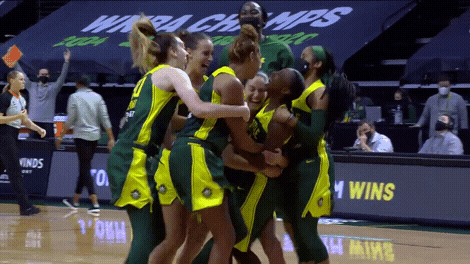Fan Status: Gated
Or can a woman really be a fan?
Fandoms, those passionate communities that form around shared interests, are meant to be inclusive spaces where enthusiasts can come together to celebrate their mutual love for a particular subject. Unfortunately, the rise of fandom gatekeeping has cast a shadow over these spaces, with some individuals attempting to establish arbitrary criteria for what makes someone a "real fan."
For many women, their gender alone invalidates them as being considered a “real” one.
20 Questions:
One peculiar facet of fandom gatekeeping is the scrutiny faced by women who choose to wear merch(andise) from bands and sports teams. Traditionally, a band shirt has been seen as a badge of honor, indicating a deep connection with the music and the community surrounding it. However, upon the site of women wearing them, some unleash their inner Alex Trebek, asking questions to validate their knowledge. “Name three songs. Name any players.” You would never immediately assume lack of knowledge if it’s a man wearing the jersey or band tshirt.
Star Wars: The Battle for Fandom Legitimacy:
The Star Wars universe, with its vast lore and dedicated fanbase, is no stranger to gatekeeping. Longtime enthusiasts may dispute the authenticity of newcomers or those who entered the fandom through the sequels rather than the original trilogy. The debate over what defines a "real" Star Wars fan has led to divisions within the community, detracting from the joy that should come with sharing a galaxy far, far away. Embracing diverse perspectives and experiences within the Star Wars fandom can only strengthen the community and ensure its longevity.
The fandom has been divided for quite some time and while I have found myself on the side of disliking the newer movies (never you, Rogue One, you beautiful masterpiece. Never you.) I’ve seen time and time again fans getting pushed out because they want to or are happy to see themselves in the universe.
For some, it feels like their fanhood is immediately under scrutiny, simply because of who they are. It doesn’t matter how they show up to celebrate and participate, if they are not the norm.
Sports Fandom: Arguing Over Allegiance:
In the realm of sports, gatekeeping often manifests as arguments over who is a true fan and who is merely a bandwagon supporter. Die-hard fans may challenge those who only follow a team during successful seasons or high-profile events. The intensity of these disputes can overshadow the fact that everyone's journey into sports fandom is unique. Whether someone has been a lifelong supporter or recently discovered a passion for a particular team, their enthusiasm should be celebrated rather than questioned.
In sports, this is ever-present especially when teams are having a bad season or are “too popular.” If you have criticisms about a team, regardless of how correct the critique is, you can easily be labeled a fair weather fan and not a true fan that is loyal to the team. If your team is too popular, it’s easy to be labeled a bandwagon fan and you’ll get questions of how long you’ve been a fan and when you joined. While there are some fans who will lose faith in a team at a sudden loss or want to root on a team that is assuredly going to win every time, this isn’t a sweeping behavior that should put fans on alert that their fanhood is constantly in some form of doubt.
For women, this is compounded by the sense that a woman can surely only be a fan of sports because of her father, brother, boyfriend, or an athlete she thinks is cute. A woman’s fanhood can’t exist without a male to validate its existence in the first place.
And God forbid that woman shows up to support their boyfriend and captures the media’s attention.
This also is seen as an unwelcome problem. A distraction if you will, did I get that right Skip?
This is why the growth of women’s sports is so important. It shows those previous assumptions to be untrue. We want to be a part of something greater. See incredible athletes at the top of their game, do the impossible.
And you know what? We want everyone to attend. We want everyone to watch and cheer and feel a part of it.
In the end, by gatekeeping, you aren’t determining whether we belong. You’re proving you don’t want us there in the first place.
Young women are the fastest growing sports market and with that comes a lot of attention and money. Why alienate when a connected fandom can do so much together? Why drive division when you love the same thing?
Fandom gatekeeping, whether it targets women in band T-shirts, Star Wars enthusiasts, or sports fans, ultimately detracts from the joy and camaraderie that fandoms are meant to foster. Embracing diversity within these communities is essential for their growth and sustainability. Instead of questioning someone's legitimacy as a fan, let's celebrate the shared love for the music, movies, or sports that bring us together, recognizing that each fan's journey is valid and valuable.












"...while I have found myself on the side of disliking the newer movies (never you, Rogue One, you beautiful masterpiece. Never you.)"
😂😂😂